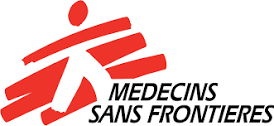Physiotherapy is transforming malnourished children's lives in Yemen.
In 2022, the Médecins Sans Frontières (MSF) Foundation began a new activity at the Haydan hospital in northern Yemen to integrate pediatric rehabilitation into medical care. The initiative aimed to support children with neuromotor challenges, most of which are linked to malnutrition—a widespread consequence of prolonged conflict and food insecurity that has severely impacted child development in the region.
What began as a pilot project has since grown into a fully operational unit. Recently, a pediatric specialist returned to assess the programme’s progress and provide advanced training.

Early rehabilitation is essential to help malnourished children recover
Rehabilitation is not just about recovery; it’s about giving children a future. “In the new rehabilitation room where MSF supports the hospital in Hayden, the effects of malnutrition on children’s development are often invisible at first,” says Wissal Hedhli, MSF Foundation pediatric specialist.
“But when you enter a ward and see a toddler unable to hold up their head, you understand just how urgent pediatric rehabilitation is.”
Rehabilitation is rarely prioritized in emergency settings. That is what makes this work in Hayden unique. For families, these services offer more than clinical support; they offer hope. For many children in crisis zones like Yemen, recovery from malnutrition doesn’t only involve feeding, it includes rehabilitative movement.
Malnutrition doesn’t only reduce people’s weight; it halts development. Children suffer from neuromotor delays and neuromuscular deficiencies, making it difficult for them to sit, stand, walk, or even play.
Early rehabilitation is essential to help malnourished children reach their full potential. The first two years of life represent a critical window for recovery and development, as brain plasticity and development are at their peak.

Screening: a new tool to prevent
Children with developmental delays often go unnoticed. Many of them, though not ill enough to be hospitalized, show clear signs of delayed growth. But as consultations are often focused mainly on medical symptoms like diarrhea or vomiting, the signs of delayed development can be overlooked, and so a child may not be admitted for physiotherapy.
Without early physical intervention or stimulation, conditions such as hypertonia - a condition in which there is too much muscle tone so that arms or legs are difficult to move - remain untreated, further hindering a child’s growth and recovery. In response, the Ministry of Health staff in Hayden hospital, in collaboration with MSF teams, introduced a simple but effective screening tool: a short set of milestone-based questions integrated into outpatient consultations. How does the child walk, sit, or speak according to its age.
This small change led to an increase in physiotherapy referrals, from just one case a month to over 20. One of the main focuses for MSF is to make this physical rehabilitation for malnourished children sustainable.

“With the support of the MSF Foundation, we train local teams to provide patient-centered, quality medical care for pediatric patients in the hospital,” says Joanne Wong Kit Sum, MSF project coordinator in Hayden.
“Our goal is not only to save young people who are susceptible to malnutrition, measles, and other diseases, but also to contribute to their development and growth. This is one way we can make a lasting impact on individual lives, even in fragile and unstable settings,” she says.
This approach not only improves the quality of care for children today but also lays the groundwork for a sustainable system. Adding a physiotherapy component to the project has enhanced the quality of care for children and created new opportunities for Ministry of Health medical staff at Haydan Hospital to develop valuable skills.
As crises continue around the world, attention and funding often focus on immediate survival. But the rehabilitative project in Haydan shows that with the right approach we can also give children a chance to thrive.
Hannah Hoexter
